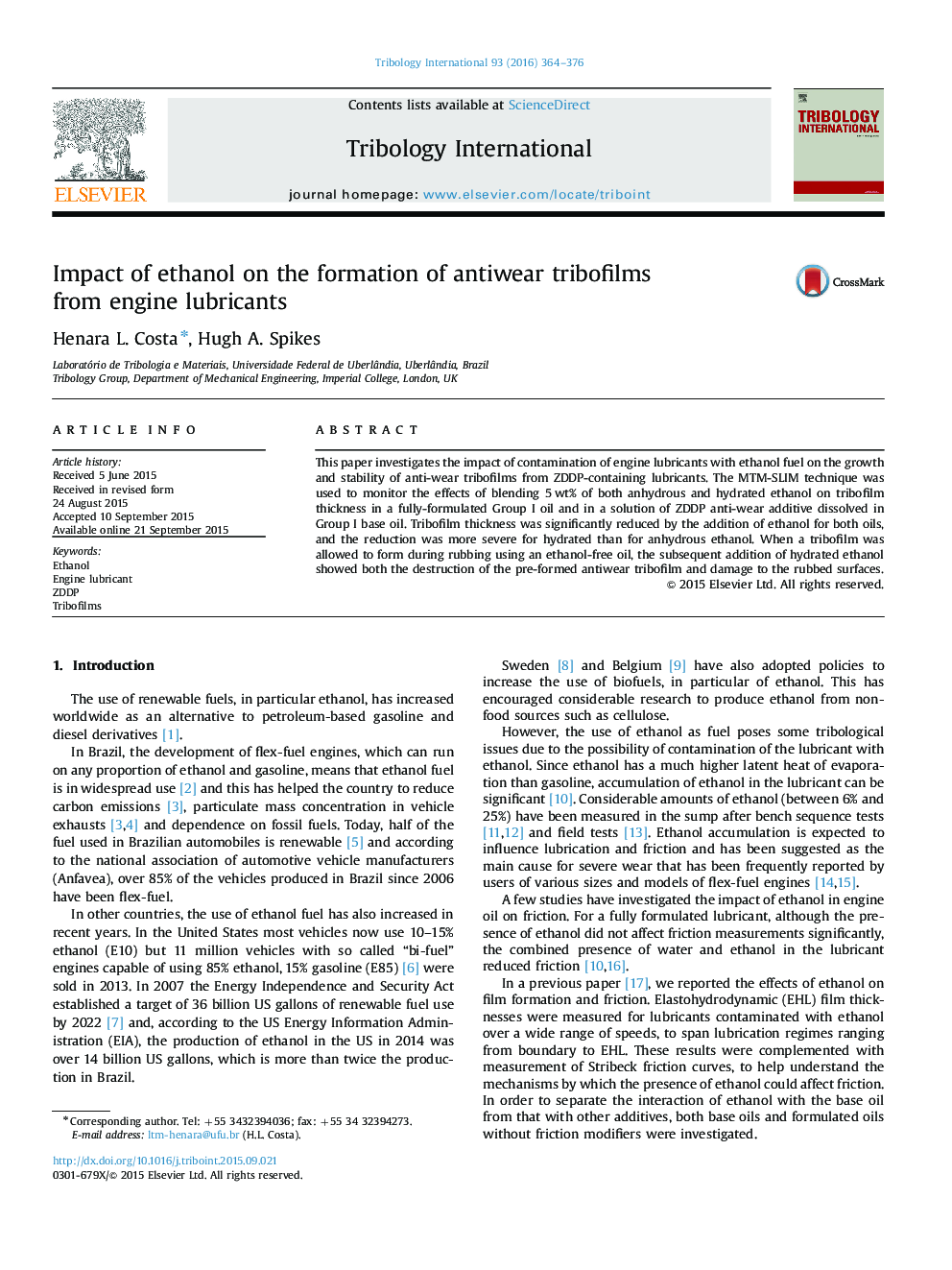| Article ID | Journal | Published Year | Pages | File Type |
|---|---|---|---|---|
| 614285 | Tribology International | 2016 | 13 Pages |
•Contamination of ZDDP-containing lubricants with ethanol was investigated.•At 100 °C, ethanol evaporated from the lubricant, not affecting the ZDDP tribofilm.•At 70 °C, a top-up methodology ensured the presence of ethanol throughout long tests.•Ethanol reduced markedly the formation rate and final thickness of the tribofilm.•The presence of water in ethanol reduced the adherence of the tribofilm.
This paper investigates the impact of contamination of engine lubricants with ethanol fuel on the growth and stability of anti-wear tribofilms from ZDDP-containing lubricants. The MTM-SLIM technique was used to monitor the effects of blending 5 wt% of both anhydrous and hydrated ethanol on tribofilm thickness in a fully-formulated Group I oil and in a solution of ZDDP anti-wear additive dissolved in Group I base oil. Tribofilm thickness was significantly reduced by the addition of ethanol for both oils, and the reduction was more severe for hydrated than for anhydrous ethanol. When a tribofilm was allowed to form during rubbing using an ethanol-free oil, the subsequent addition of hydrated ethanol showed both the destruction of the pre-formed antiwear tribofilm and damage to the rubbed surfaces.
